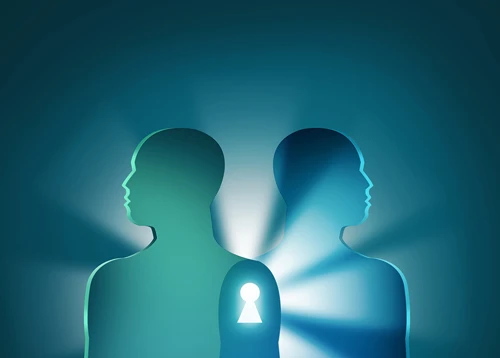Have you ever experienced a dream that felt so vivid and real, as if you were reliving moments from a past life? The concept of past lives and reincarnation has fascinated humanity for centuries, sparking numerous debates and theories. In this article, we will delve into the intriguing concept of past lives in dreams and explore the various ways in which dreams can provide glimpses into our previous existence. From understanding the psychology of dream interpretation to examining shared memories and emotional resonance, we will unravel the mysterious connections between past lives and dreams. So, join us on this captivating journey as we uncover the hidden realms of the subconscious mind and explore the depths of our past through the enigmatic world of dreams.
The Concept of Past Lives
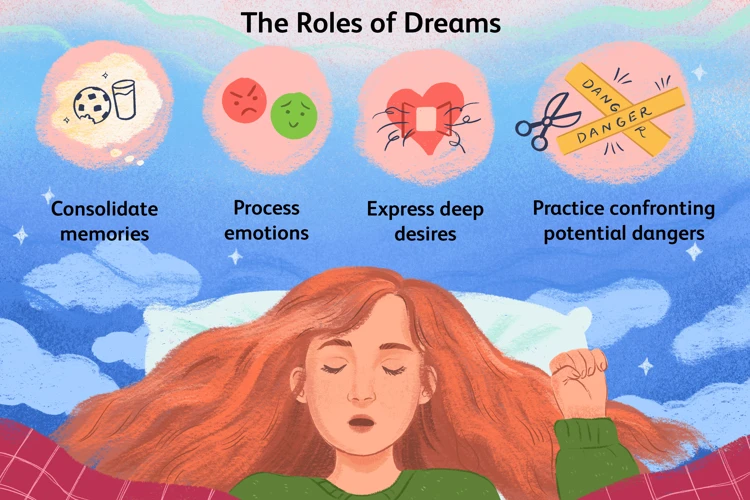
The concept of past lives has intrigued humanity for centuries, provoking contemplation and curiosity about the cycle of life and death. Understanding reincarnation forms the foundation of this concept, suggesting that souls can be reborn into new bodies after death. This belief has been embraced in various cultures around the world, with reincarnation serving as a core tenet in religions such as Hinduism and Buddhism. The idea of past lives holds different relevance in different cultures, shaping their spiritual beliefs and practices. While some cultures use techniques like past life regression therapy to explore their past incarnations, others seek insights through dreams, viewing them as gateways to past experiences. Our dreams hold a key to unlocking the mysteries of our past lives, providing glimpses into intriguing scenarios, unfamiliar places, and connections to people from bygone eras. So, let us embark on a journey to explore the depths of our subconscious mind and uncover the enigmatic realm of past lives as revealed through the realm of dreams.
1.1 Understanding Reincarnation
Understanding reincarnation is essential to delve into the concept of past lives and its connection to dreams. Reincarnation is a belief that suggests the soul can be reborn into a new body after death. This idea is deeply rooted in various cultures and religions across the world, such as Hinduism, Buddhism, and certain Indigenous belief systems. According to this belief, the soul goes through a cycle of birth, death, and rebirth, carrying with it accumulated knowledge and experiences from previous lives. The process of reincarnation is often seen as a means for spiritual growth and evolution. It is believed that each lifetime offers opportunities for learning, personal development, and the resolution of karma, which refers to the consequences of past actions. Through this continuous process of rebirth, individuals have the chance to evolve and progress towards spiritual enlightenment. While the specifics of reincarnation may vary across cultures and religious traditions, the underlying idea remains consistent – the soul’s journey through multiple lives with the objective of growth and enlightenment. In the context of exploring past lives in dreams, the concept of reincarnation provides a framework through which dream experiences can be interpreted as glimpses into past incarnations. By examining these dreams, analyzing dream symbols, and using techniques such as dream analysis or past life regression, individuals can gain deeper insights into their past selves and the connections that transcend time. Understanding reincarnation broadens our perspectives on the nature of existence and opens up new possibilities for self-discovery and spiritual exploration.
1.2 Relevance in Different Cultures
The concept of past lives and reincarnation holds significant relevance in different cultures across the globe, shaping their spiritual beliefs and practices. In Hinduism, the belief in reincarnation is deeply ingrained in the idea of karma, where an individual’s actions in their current life determine their future rebirth. Hindu scriptures such as the Bhagavad Gita and the Upanishads discuss the cycle of birth, death, and rebirth, emphasizing the soul’s journey through multiple lives. Similarly, in Buddhism, the concept of past lives is intricately linked to the process of attaining enlightenment and breaking free from the cycle of samsara. Tibetan Buddhism, in particular, has a rich tradition of recognizing and identifying reincarnated spiritual leaders, known as tulkus.
Interestingly, the notions of past lives can also be found in several indigenous cultures. For example, among the Native American tribes, the concept of reincarnation is intertwined with spiritual beliefs centered around the interconnectedness of all living beings. Many tribes believe in the existence of a collective ancestral memory, where past life experiences are passed down through generations.
In certain African cultures, particularly those influenced by animism, the belief in ancestral spirits and reincarnation is prevalent. They view life as a continuous cycle, with individuals being connected to their ancestors and future generations. It is believed that ancestors can be reborn within the same family as a means of carrying forward their wisdom and lineage.
The relevance of past lives in different cultures extends beyond religious and spiritual practices. It often permeates folklore, mythology, and oral traditions, providing narratives that explain the origins of individuals, families, and communities. These cultural variations reflect the diverse ways in which past lives are understood and integrated into the fabric of societies across the world. By exploring the beliefs and perspectives of different cultures, we gain a deeper appreciation for the enduring fascination and universal appeal of the concept of past lives.
Interpreting Dreams
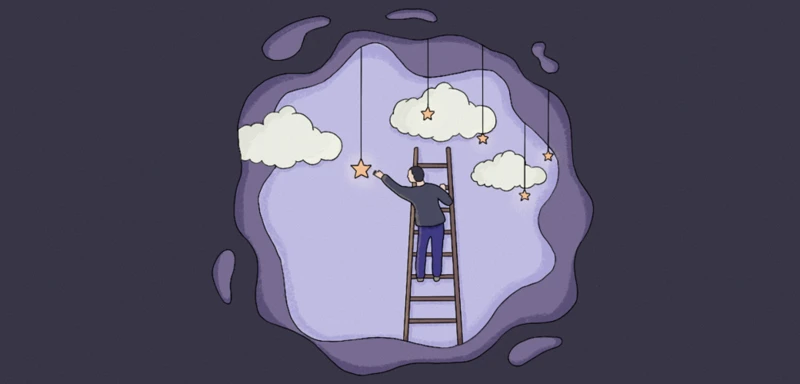
When it comes to understanding the messages hidden within our dreams, the field of dream interpretation opens up a fascinating realm of possibilities. The psychology of dream interpretation delves into the intricate workings of our subconscious mind, recognizing that dreams serve as a window into our deepest desires, fears, and emotions. Through careful analysis, we can unravel the symbolic language of dreams, discovering symbols and significance that may provide insights into our past lives. Each dream element carries a unique meaning, whether it be a person, object, or scenario, and piecing them together can offer a deeper understanding of our past life experiences. Exploring dream symbols and their connection to past lives can shed light on unresolved issues, recurring patterns, and even provide a glimpse into our previous incarnations. By delving into the rich tapestry of our dreams, we embark on a journey of self-discovery, uncovering the hidden messages that lie within the realms of our subconscious mind.
2.1 Psychology of Dream Interpretation
Understanding the psychology of dream interpretation is essential in unraveling the meanings behind our subconscious experiences. Dreams have long fascinated psychologists and researchers, who have developed various theories to explain their significance. One prominent theory is Sigmund Freud’s psychoanalytic approach, which suggests that dreams serve as a window into our unconscious desires and repressed emotions. According to Freud, dreams contain symbolic representations of our deepest wishes, fears, and unresolved conflicts. These symbols often manifest in the form of imagery, metaphors, and archetypes. The interpretation of dreams requires an exploration of these symbols and their significance in relation to the dreamer’s personal experiences and emotions. Another influential theory is Carl Jung’s analytical psychology, emphasizing the collective unconscious and the presence of universal symbols known as archetypes. Jung believed that dreams provide insights into the collective human experience and the collective unconscious, consisting of shared symbols and themes that connect all individuals. Within the realm of psychology, dream interpretation techniques include free association, where the dreamer explores their thoughts and emotions associated with the dream symbols, and amplification, which involves examining cultural symbols and mythologies that may resonate with the dream content. So, by delving into the psychology of dream interpretation, we can uncover the hidden messages and deeper meanings within our dreams, providing a gateway to self-discovery and understanding.
2.2 Symbols and Significance
Symbols play a crucial role in the interpretation of dreams and hold significant meaning when exploring the concept of past lives. Within the realm of dreams, symbols can often represent hidden or subconscious messages that relate to our previous incarnations. These symbols can be personal or universal, representing emotions, experiences, or archetypal figures that hold collective meaning. For instance, common symbols such as water, bridges, or keys can signify transitions or unlocking hidden knowledge from past lives. To understand the significance of these symbols, it is important to analyze their context and the emotions they evoke. Dreams may also incorporate objects, places, or people from past incarnations, providing clues about previous roles or connections. For example, encountering a specific historical figure or being present in a location from a bygone era could indicate a direct connection to a past life. By paying attention to and interpreting these symbols, we can gain valuable insights into our past experiences and uncover the intricate web of our soul’s journey through time.
Past Lives and Dream Connections
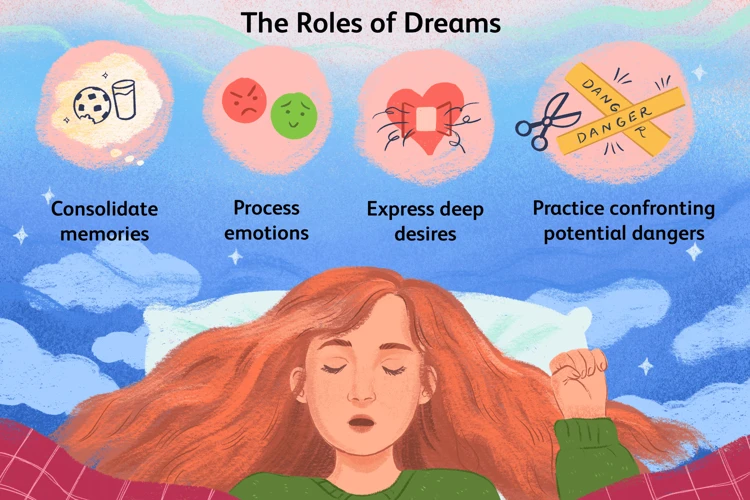
The mysterious connections between past lives and dreams have captivated the imagination of many. There are several ways in which our dreams provide glimpses into our previous existence. One fascinating aspect is the presence of shared memories and recurring dreams. Some individuals report vivid dreams that depict specific historical events or places they have never encountered in their current life. These dreams often carry a sense of familiarity and evoke strong emotions, leading to the belief that they are tapping into past life experiences. Additionally, emotional resonance and unexplained phobias can also provide clues about past lives. Dreams that trigger intense emotions or fears may be rooted in past life traumas or unresolved experiences. Exploring these emotions and fears through dream analysis can help uncover hidden connections to previous incarnations. Dreams can also reveal ancestral links and familiarity, where individuals dream of people or places that have significance in their family history. This suggests a continuation of connections across generations, further blurring the boundaries between past lives and present realities. By delving into the realm of dreams, we gain a deeper understanding of our past and how it shapes our present existence.
3.1 Shared Memories and Recurring Dreams
Shared memories and recurring dreams are fascinating aspects of the connection between past lives and dreams. Many individuals have reported experiencing vivid and detailed memories during their dreams that they cannot attribute to their current life experiences. These memories often depict events, locations, and people from different eras, leaving an indelible impression on the dreamer. These shared memories may arise from past life experiences, where the soul retains fragments of its previous existence.
Recurring dreams further add to the intrigue, as they often feature similar themes, settings, or characters that persist over time. These dreams can be seen as glimpses into past lives, where certain unresolved emotions, situations, or relationships manifest repeatedly in the dream state. For example, a person may have recurring dreams of being a sailor in the 18th century or being chased by a particular person or animal. Such dreams can indicate that unresolved issues or unfinished business from a past life are trying to find resolution in the present.
The significance of these shared memories and recurring dreams lies in the potential for personal growth and healing. By acknowledging and exploring these dreams, individuals can gain insights into their past lives, identify patterns or themes that may be affecting their present life, and find closure for unresolved emotions or conflicts. These dreams can serve as catalysts for self-reflection and exploration, allowing individuals to gain a deeper understanding of themselves and their soul’s journey across multiple lifetimes.
It’s important to note that while shared memories and recurring dreams can be intriguing, they should be approached with an open mind and a healthy dose of skepticism. Dream interpretation is a subjective field, and personal biases and beliefs can influence the meaning individuals assign to their dreams. Seeking the guidance of a trained professional, such as a therapist or regression therapist, can provide a more nuanced understanding of the connections between shared memories, recurring dreams, and past lives.
In the following sections, we will explore other fascinating aspects of the connection between past lives and dreams, including emotional resonance and unexplained phobias, ancestral links, and familiarity in dreams.
3.2 Emotional Resonance and Unexplained Phobias
Dreams have the remarkable ability to evoke intense emotions within us, and sometimes, these emotions can feel strangely familiar or deeply rooted. One fascinating aspect of exploring past lives in dreams is the phenomenon of emotional resonance. When we experience strong emotions while dreaming, such as fear, sadness, or joy, they may be linked to past life experiences. For instance, if you have an unexplained phobia in your waking life, such as a fear of water or heights, it could potentially be connected to a traumatic event or circumstance from a past life. In dreams, these phobias often manifest themselves in vivid and terrifying scenarios, providing us with clues to their origins. By analyzing and reflecting on the emotional responses we have during these dreams, we can gain insights into the underlying past life experiences that may have led to the development of these persistent fears in our present lives.
To illustrate this further, let’s consider the example of someone who has an unexplained fear of drowning. In their dreams, they may constantly find themselves struggling to stay afloat amidst turbulent waters, feeling an overwhelming panic and suffocation. This recurring theme of drowning in dreams could be a manifestation of a past life trauma, such as a drowning incident that deeply affected their subconscious mind. The emotional resonance they feel during these dream scenarios can be a powerful indication that their current fear of drowning is rooted in a past life experience. By exploring and acknowledging these dream experiences, individuals can work towards healing and resolving these phobias in their present lives.
It is important to note that not all unexplained phobias or emotional triggers in dreams are necessarily linked to past lives. They can also stem from other factors such as childhood experiences or subconscious fears. However, when there is a persistent and unexplainable emotional resonance tied to specific themes or scenarios in dreams, the possibility of past life connections becomes worth exploring. By delving into the depths of our dreams and their emotional components, we can uncover hidden glimpses of our past selves and gain a deeper understanding of the profound ways in which our past lives continue to impact us in the present.
3.3 Ancestral Links and Familiarity
Ancestral links and familiarity in dreams can provide compelling evidence of past life connections. When we experience a deep sense of familiarity with people, places, or cultures in our dreams, it may indicate that we have inherited memories or connections from our ancestors. These dreams often present us with vivid scenes and emotions that resonate with a historical time period or a specific family lineage. The feelings of déjà vu that arise from these dreams can be incredibly powerful, as if we are reliving moments from the past. It’s not uncommon to dream of ancestral homes, ancestral professions, or even encounter individuals who resemble long-lost relatives. These dreams serve as a window into the collective consciousness of our lineage, bridging the gap between our present selves and the experiences of our ancestors. Exploring ancestral links and familiarity in dreams can offer a deeper understanding of our personal history and shed light on the interconnectedness of our souls across time and generations. So, pay attention to the familiar faces, places, and stories that unfold in your dreams, for they may provide significant clues to your ancestral past.
Case Studies
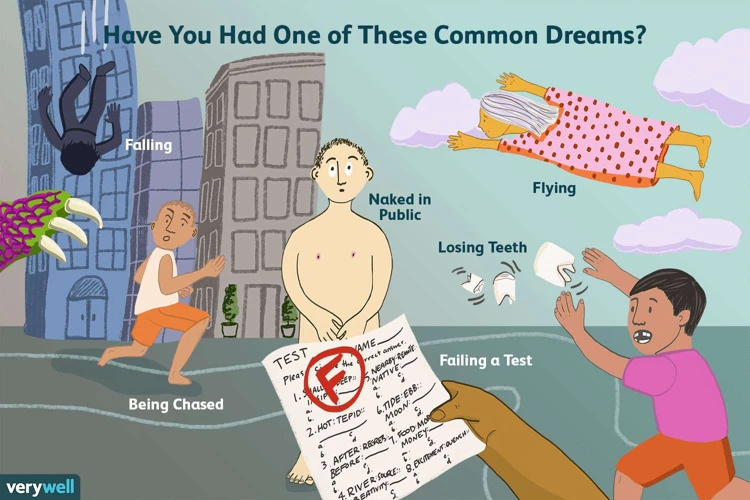
Case studies serve as compelling evidence for the connection between past lives and dreams. These stories provide unique insights into the experiences of individuals who have had remarkable encounters with their past selves through the medium of dreams. Notable past life dream stories include accounts of people who vividly remember historical events and places they have never visited in their present lives. These dreams often contain intricate details and emotions that cannot be easily dismissed as mere figments of the imagination. Through regression therapy and dream exploration, individuals have been able to unlock memories of past lives and gain a deeper understanding of their current existence. These case studies shed light on the intricate nature of our consciousness and its ability to transcend time and space, leaving us questioning the boundaries of our perceived reality.
4.1 Notable Past Life Dream Stories
In this section, we will explore some fascinating and notable past life dream stories that have captured the attention and imagination of many individuals. These stories serve as intriguing examples of the potential connections between past lives and dreams.
1. The Titanic Connection: In one remarkable case, a woman claimed to have vivid dreams about being aboard the ill-fated Titanic. She described specific details about the ship, its passengers, and the tragic sinking. After extensive research, it was discovered that her dream descriptions aligned with historical records of the Titanic. This uncanny connection led many to believe that she had a past life connection to the Titanic.
2. The Revolutionary War Soldier: Another intriguing story involves a young boy who consistently dreamt about being a soldier during the American Revolutionary War. In his dreams, he vividly recounted battles, events, and specific locations. His detailed accounts were found to be historically accurate, and the boy had never been exposed to this information before. This case provided compelling evidence of a possible link between his dreams and a past life experience as a soldier.
3. The Reunited Lovers: A heartwarming tale tells of two individuals who met in a dream and recognized each other as former lovers from a previous lifetime. Both individuals shared intricate details of their past relationship, including their names, specific memories, and even the circumstances of their separation. This encounter left them with a profound sense of love, longing, and connection. To this day, they firmly believe that their dreams brought them together again, transcending time and space.
These notable past life dream stories showcase the power and enigmatic nature of dreams in revealing glimpses of previous incarnations. While skeptics may dismiss these accounts as mere coincidences or imaginary tales, they continue to captivate and intrigue those with an open mind towards the mysteries of past lives and the profound realm of dreams.
4.2 Regression Therapy and Dream Exploration
Regression therapy and dream exploration are two powerful tools that can be used to delve deeper into the realm of past lives. Regression therapy involves guided relaxation techniques and hypnosis to access past life memories and experiences buried within the subconscious mind. Through regression therapy, individuals can tap into their unconscious memories and uncover details about their past lives that may elude them in their waking state. This therapeutic approach allows individuals to gain insights into unresolved emotions, recurring patterns, and unexplained phobias that may stem from past life experiences.
Dream exploration, on the other hand, involves analyzing the symbolism and narratives within dreams to uncover connections to past lives. Dreams have the ability to transport us to different time periods, places, and scenarios, offering glimpses of past life experiences that may have influenced our present realities. By keeping a dream journal and actively interpreting the symbols and themes present in dreams, individuals can unlock hidden messages and uncover links to their previous incarnations.
Regression therapy and dream exploration can complement each other, providing a comprehensive approach to understanding past lives. In some cases, regression therapy may even stimulate dream recall and enhance the clarity and significance of dreams related to past lives. By combining these two modalities, individuals can embark on a transformative journey of self-discovery, healing unresolved traumas, and gaining a deeper understanding of their soul’s journey across multiple lifetimes. It is important to approach both regression therapy and dream exploration with an open mind and a willingness to explore the unknown, as they can uncover profound insights and facilitate personal growth.
Theories and Debates
The exploration of past lives and dreams has sparked a plethora of theories and debates, reflecting the diverse perspectives and beliefs surrounding this intriguing topic. From a scientific standpoint, some experts argue that dreams are simply a product of our subconscious mind, influenced by our experiences, memories, and emotions. They view the idea of past lives in dreams as a result of psychological processes rather than evidence of actual reincarnation. On the other hand, spiritual perspectives embrace the notion of eternal souls and the continuation of consciousness across lifetimes. These viewpoints suggest that dreams can serve as portals to past lives, allowing us to access and process unresolved experiences and emotions from previous incarnations. However, skepticism and skeptic arguments also exist, questioning the authenticity and validity of past life claims and dream connections. While the debate between the scientific and spiritual viewpoints continues, one thing remains certain – the concept of past lives in dreams continues to captivate our imagination and challenge our understanding of the human experience.
5.1 Scientific vs. Spiritual Perspectives
When it comes to exploring the concept of past lives in dreams, there are different perspectives that arise: scientific and spiritual. The scientific perspective approaches the phenomenon through the lens of psychology and neurology. It attributes past life dreams to various factors such as memories, imagination, and the brain’s ability to create narratives during sleep. According to this viewpoint, past life dreams are seen as constructs of the mind rather than actual glimpses into previous existences. Scientists argue that dreams are a product of the brain’s processing of information and experiences, including elements from our waking life and cultural influences.
On the other hand, the spiritual perspective views past life dreams as a means of accessing the collective consciousness and tapping into the wisdom of past incarnations. Proponents of this viewpoint believe that dreams can be portals to past lives, providing insights and lessons from previous experiences. They argue that past life dreams contain symbolic imagery and messages that hold spiritual significance. According to spiritual beliefs, these dreams can offer guidance, healing, and a deeper understanding of one’s soul journey.
The debate between scientific and spiritual perspectives on past life dreams is an ongoing one, with both sides presenting valid arguments. While scientific explanations tend to focus on physiological and psychological factors, spiritual perspectives emphasize the metaphysical and transcendental aspects of dreams. It is important to note that the scientific perspective seeks empirical evidence and relies on measurable data, while the spiritual perspective relies more on subjective experiences and intuitive understanding. Ultimately, the interpretation of past life dreams as scientific or spiritual experiences depends on personal beliefs and experiences, and each perspective contributes to the rich tapestry of understanding the mysteries of past lives.
5.2 Scepticism and Skeptic Arguments
Scepticism and skeptic arguments play a significant role in the debate surrounding the concept of past lives and dreams. Skeptics approach the subject with a critical mindset, questioning the validity and scientific basis of claims related to past life experiences. They argue that dreams are merely a result of the brain’s random firing of neurons, and any perceived connections to past lives are nothing more than coincidences or fabrications of the mind. Skeptics also point out the lack of concrete empirical evidence to support the existence of past lives and argue that the interpretation of dreams as glimpses into past incarnations is purely subjective. Additionally, they highlight the influence of cultural and societal beliefs in shaping people’s perceptions and experiences related to past lives in dreams. While skeptics offer valid concerns and doubts, proponents of the concept counter with personal accounts, regression therapy experiences, and anecdotal evidence. The debate between skeptics and believers in past lives and dreams will likely continue, leaving room for ongoing exploration and investigation.
Conclusion
In , the concept of past lives in dreams opens up a fascinating realm of exploration into the depths of our subconscious minds. Throughout this article, we have delved into various aspects of this subject, including the understanding of reincarnation and its relevance in different cultures, the psychology behind dream interpretation, the significance of symbols in dreams, and the connections between past lives and dream experiences. By analyzing shared memories, recurring dreams, emotional resonance, unexplained phobias, and ancestral links, we have discovered the potential for our dreams to provide glimpses into our past incarnations. Additionally, we have explored notable past life dream stories and the role of regression therapy in uncovering past life experiences. The theories and debates surrounding the scientific and spiritual perspectives on past lives have also been examined. While skeptics raise arguments against the validity of such experiences, the enigmatic nature of dreams and the emotional impact they can have on individuals cannot be easily dismissed. In essence, the concept of past lives in dreams offers a captivating and deeply personal journey of self-discovery and introspection. Whether you believe in the spiritual aspects of reincarnation or approach it from a scientific standpoint, exploring the concept of past lives in dreams allows us to tap into our subconscious and possibly gain a deeper understanding of our own selves and the world around us. It invites us to question the boundaries of time and the interconnectedness of our souls throughout multiple lifetimes. So, the next time you find yourself immersed in a vivid dream, take a moment to reflect on the possibility that it may be more than just a creation of your imagination – it could be a glimpse into your past lives and the eternal journey of your soul.
Frequently Asked Questions
1. Can dreams really provide clues about past lives?
While dreams cannot provide concrete evidence of past lives, they can offer symbolic glimpses and insights into our subconscious mind, including potential connections to previous existences.
2. How can I interpret dreams that might be related to past lives?
Dream interpretation is subjective, but you can look for recurring themes, unfamiliar settings, or people that evoke strong emotions. Symbols and emotions in dreams may hold clues to past life experiences.
3. Are there any scientific explanations for past life dreams?
Scientifically, past life dreams are often attributed to the brain’s ability to create vivid and imaginative scenarios during the REM sleep stage, influenced by memories, experiences, and cultural influences.
4. Are past life dreams more common in certain cultures?
Yes, past life beliefs and experiences are more prevalent in cultures that embrace the concept of reincarnation, such as Hinduism, Buddhism, and certain indigenous traditions that view life as a continuous cycle.
5. Can past life dreams help me overcome present-life challenges?
While not a guarantee, past life dreams can offer insights into unresolved issues or recurring patterns, allowing you to gain awareness and potentially find healing in your current life.
6. Is it possible for two people to share the same past life in their dreams?
Shared past life dreams are a fascinating possibility, suggesting a unique bond or connection between individuals that transcends time. However, it is difficult to prove the authenticity of such experiences.
7. Can past life dreams cause emotional distress?
Yes, past life dreams can evoke intense emotions, as they may bring forth unresolved traumas or deep-seated fears from previous existences. It is important to process and seek support if such dreams cause distress.
8. Are there any documented cases of people recalling specific details from past life dreams?
There have been various documented cases where individuals claimed to recall specific details from past life dreams, often involving historical events, locations, or people. However, such accounts are subjective and open to interpretation.
9. How can past life regression therapy aid in exploring past lives?
Past life regression therapy involves hypnosis to access past life memories and experiences. It is believed to help individuals gain deeper insights, heal past traumas, and understand the roots of present-day challenges.
10. How can skeptics explain past life dreams?
Skeptics often attribute past life dreams to the workings of the subconscious mind, the influence of cultural and media conditioning, or simply dismiss them as imaginative products of the dreaming brain.

